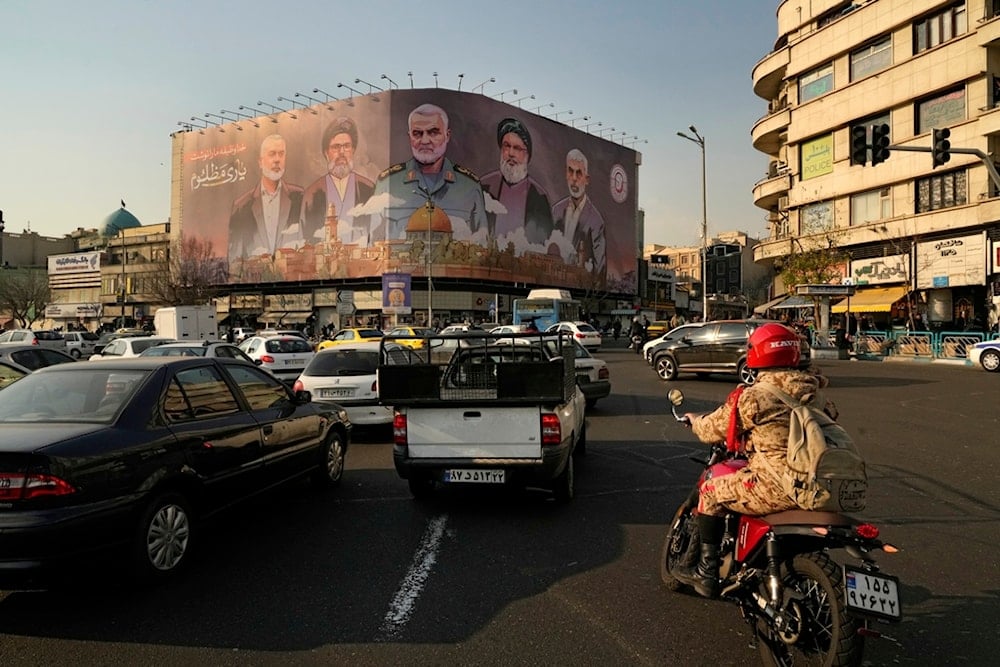Iran: Ready for talks or war, demands sanctions lifted
Iran signaled readiness for either negotiations or confrontation, with officials stressing non-negotiable rights to enrichment.
-

Vehicles drive on Enqelab-e-Eslami (Islamic Revolution) square under a huge banner showing the late commander of the Islamic Revolution's Guard Corps Quds Force, Gen. Qassem Soleimani, center, who was killed in a U.S. drone attack in 2020, and Hezbollah and Hamas officials killed by Israelis, in Tehran, Iran, Tuesday, Jan. 21, 2025. (AP Photo/Vahid Salemi)
Iranian Foreign Minister Abbas Araghchi declared Wednesday that Tehran does not shy away from either negotiations or war, stressing that the country is prepared for both scenarios if circumstances demand. He underlined that any path to renewed diplomacy must be grounded in genuine goodwill from the other side, without preconditions designed to undermine Iran's sovereignty.
Deputy Foreign Minister for Political Affairs Majid Takht-Ravanchi reinforced this position, insisting that Iran requires firm guarantees against any repeat of past aggression before engaging in new talks with Washington. He emphasized that uranium enrichment is an indisputable national right and will not be subject to compromise, adding that no agreement will be acceptable without the full lifting of sanctions.
Ali Larijani, Secretary of the Supreme National Security Council, echoed the government's readiness for dialogue but noted that "the path to negotiations with the United States is not closed." At the same time, he criticized Washington's conduct, accusing it of presenting "unrealizable issues such as missile restrictions" that negate any serious discussion. He argued that the United States pays lip service to talks but avoids coming to the table in good faith.
Negotiations or escalation
The remarks follow the decision by Britain, France, and Germany to activate the UN "snapback" mechanism, a move that could restore international sanctions on Iran within 30 days unless an alternative arrangement is reached. Tehran dismissed the measure as illegitimate, accusing the European Troika of breaching their obligations under the nuclear accord.
On Tuesday, the Iranian Foreign Ministry charged that the United States has "no good intentions toward negotiations," describing Washington's repeated obstruction of the diplomatic process as proof of its lack of commitment to international agreements.
Meanwhile, Esmail Kowsari, a member of Parliament's Committee on National Security and Foreign Policy, said that any decision to withdraw from the Nuclear Non-Proliferation Treaty (NPT) ultimately lies with the Supreme National Security Council. He noted that Parliament would back such a step if necessary, while stressing that Iran has multiple other options to respond to the European move, which will be disclosed at a later stage.
Read more: China, Russia back Iran against European push for snapback sanctions
Together, the statements reflect Tehran's dual posture: leaving the door open for rational negotiations, while preparing for escalation should Western powers persist in a campaign of pressure and double standards.

 3 Min Read
3 Min Read








